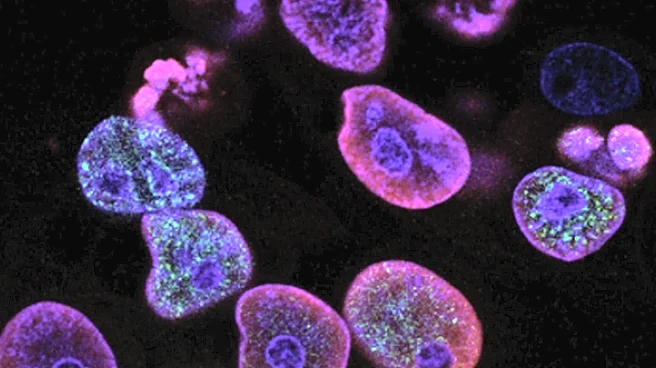What's Happening?
A study conducted by the University of Witwatersrand in Johannesburg, South Africa, has identified differentially expressed genes and associated immune cell types in gallbladder cancer patients. The research
involved collecting 43 tissue samples, including normal tissues, gallstones, and advanced-stage gallbladder tumors. RNA sequencing was performed to analyze gene expression, and the study utilized various tools such as DESeq2 for differential expression analysis and quanTIseq for quantifying immune cell types. The study aimed to understand the tumor immune contexture and gene expression in gallbladder cancer, which could lead to better diagnostic and therapeutic strategies.
Why It's Important?
The identification of specific genes and immune cell types associated with gallbladder cancer is crucial for developing targeted therapies and improving diagnostic accuracy. Gallbladder cancer is a challenging disease with limited treatment options, and understanding its molecular and immune landscape can lead to more effective interventions. This research could pave the way for personalized medicine approaches, enhancing patient outcomes and potentially reducing mortality rates associated with gallbladder cancer.
What's Next?
The study's findings may lead to further research into targeted therapies for gallbladder cancer, focusing on the identified genes and immune cells. Clinical trials could be initiated to test new treatments based on these insights, potentially improving survival rates and quality of life for patients. Additionally, the research may influence guidelines for gallbladder cancer diagnosis and treatment, incorporating molecular and immune profiling as standard practice.
Beyond the Headlines
The study highlights the importance of international collaboration in cancer research, as insights gained from South African patients could benefit global understanding of gallbladder cancer. Ethical considerations in genetic research and patient consent are also underscored, ensuring that studies adhere to international guidelines and respect patient rights.











